Ashkan Abbasi
Multiscale Sparsifying Transform Learning for Image Denoising
Mar 25, 2020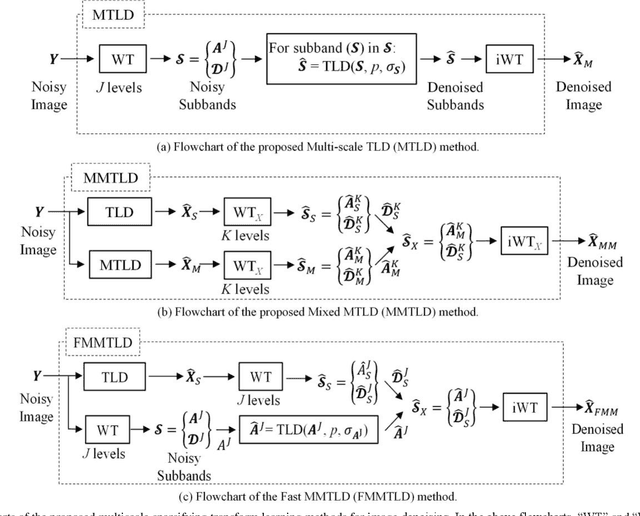
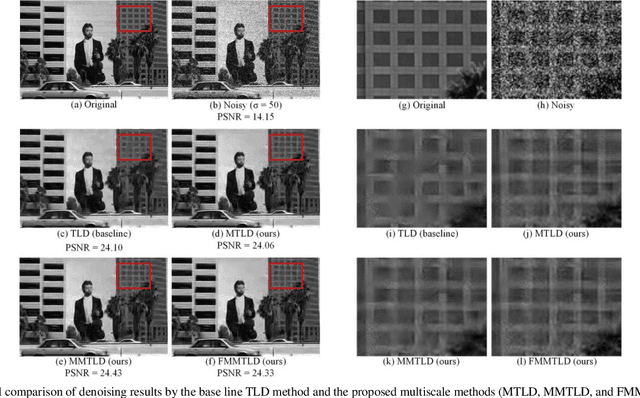

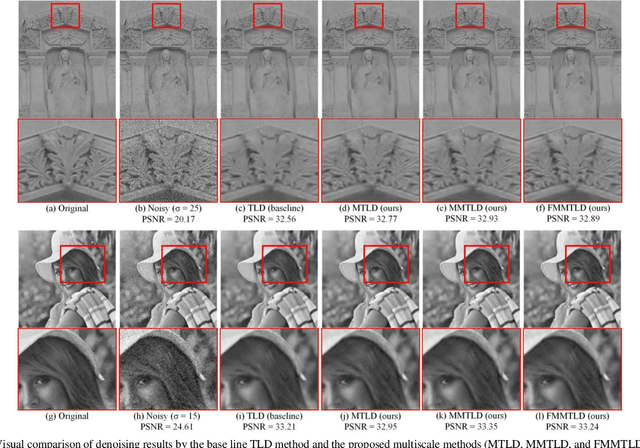
Abstract:The data-driven sparse methods such as synthesis dictionary learning and sparsifying transform learning have been proven to be effective in image denoising. However, these methods are intrinsically single-scale, which ignores the multiscale nature of images. This often leads to suboptimal results. In this paper, we propose several strategies to exploit multiscale information in image denoising through the sparsifying transform learning denoising (TLD) method. To this end, we first employ a simple method of denoising each wavelet subband independently via TLD. Then, we show that this method can be greatly enhanced using wavelet subbands mixing, which is a cheap fusion technique, to combine the results of single-scale and multiscale methods. Finally, we remove the need for denoising detail subbands. This simplification leads to an efficient multiscale denoising method with competitive performance to its baseline. The effectiveness of the proposed methods are experimentally shown over two datasets: 1) classic test images corrupted with Gaussian noise, and 2) fluorescence microscopy images corrupted with real Poisson-Gaussian noise. The proposed multiscale methods improve over the single-scale baseline method by an average of about 0.2 dB (in terms of PSNR) for removing synthetic Gaussian noise form classic test images and real Poisson-Gaussian noise from microscopy images, respectively. Interestingly, the proposed multiscale methods keep their superiority over the baseline even when noise is relatively weak. More importantly, we show that the proposed methods lead to visually pleasing results, in which edges and textures are better recovered. Extensive experiments over these two different datasets show that the proposed methods offer a good trade-off between performance and complexity.
Three-dimensional Optical Coherence Tomography Image Denoising via Multi-input Fully-Convolutional Networks
Nov 22, 2018

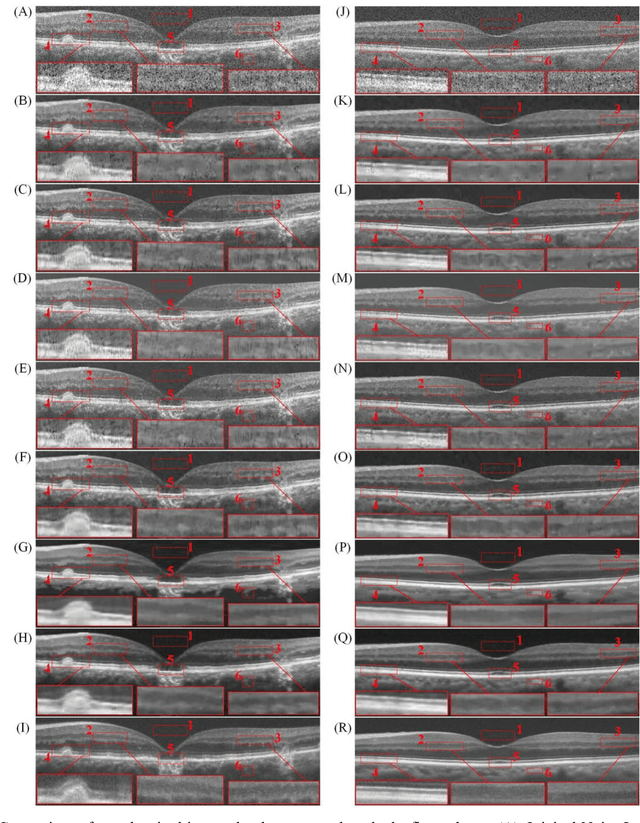
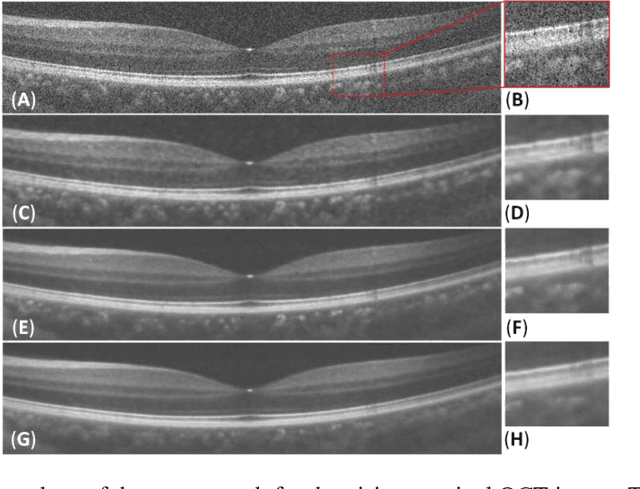
Abstract:In recent years, there has been a growing interest in applying convolutional neural networks (CNNs) to low-level vision tasks such as denoising and super-resolution. Optical coherence tomography (OCT) images are inevitably affected by noise, due to the coherent nature of the image formation process. In this paper, we take advantage of the progress in deep learning methods and propose a new method termed multi-input fully-convolutional networks (MIFCN) for denoising of OCT images. Despite recently proposed natural image denoising CNNs, our proposed architecture allows exploiting high degrees of correlation and complementary information among neighboring OCT images through pixel by pixel fusion of multiple FCNs. We also show how the parameters of the proposed architecture can be learned by optimizing a loss function that is specifically designed to take into account consistency between the overall output and the contribution of each input image. We compare the proposed MIFCN method quantitatively and qualitatively with the state-of-the-art denoising methods on OCT images of normal and age-related macular degeneration eyes.
 Add to Chrome
Add to Chrome Add to Firefox
Add to Firefox Add to Edge
Add to Edge